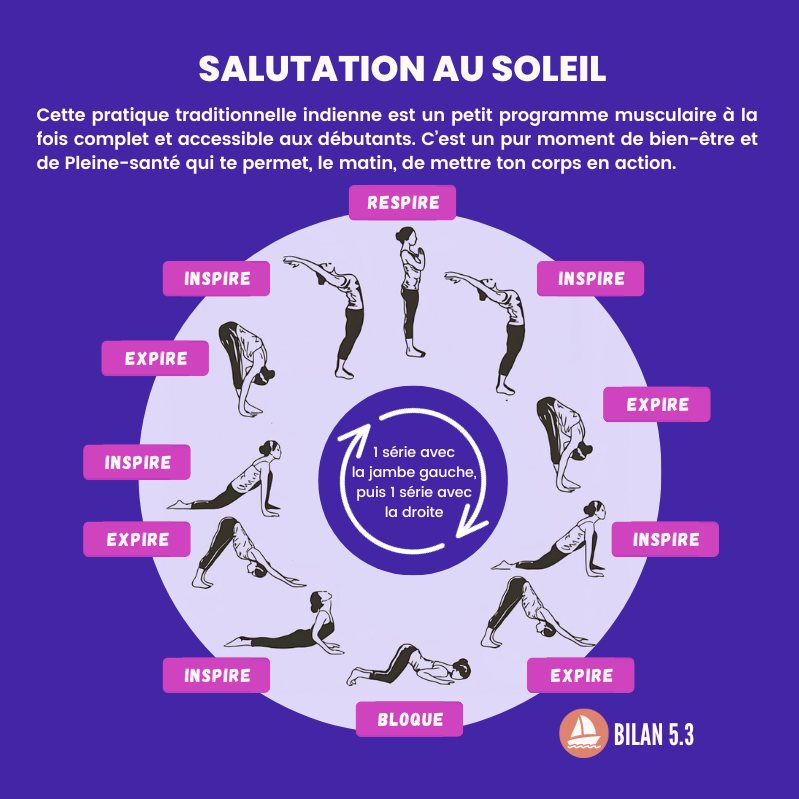Some good news about SARS-CoV-2 since the virus is less transmissible by surfaces and in the sun. The British variant, the majority in France, does not seem to lead to more serious forms and deaths.

- The British variant is far more contagious than the classic strain of the virus.
- Exposure to the sun would lead to the release of nitric oxide from the skin which reduces the ability of the virus to replicate.
- The risk of infection from contact with a contaminated surface is low and generally less than 1 in 10,000.
Some bright spots in the dark horizon of the Covid. With the arrival of sunny days looming, a recently published study confirms the conclusions of initial research published a year ago: SARS-CoV-2 does not like the sun. The US federal health agency, the CDC for centers for Disease Control and Prevention, recently announced that transmission through a surface is actually much rarer than imagined. The risk is considered less than 1 in 10,000. Finally, two studies presented this week affirm that the British variant, if it is much more contagious than the classic strain, does not lead to more serious forms of Covid-19 nor to death.
The English variant, 35% more contagious
The 501Y.V1 variant, or British variant, which is now dominant in much of Europe and especially in France, would be less aggressive than expected. Two studies, published this Monday, April 12 respectively in The Lancet Infectious Diseases and The Lancet Public Health concluded that this strain would not cause more severe or prolonged symptoms.
In the details of the first research, the scientists analyzed data from 341 Covid patients hospitalized in London between November 9 and December 20. They found that 58% of them were infected with the English variant while the rest were infected with other strains. An almost similar proportion of patients in each group developed a serious form or died since this concerned 36% of the members of the first group and 38% of the second. Moreover, by analyzing the samples from patients infected with the variant, the researchers found a greater quantity of virus, which confirms the greater contagiousness of this strain. Commenting on the first study, three researchers from the National Center for Infectious Diseases (NCID) in Singapore stress that the use of complete sequencing of the virus is a guarantee of seriousness but believes that the results must “be confirmed by larger studies”.
New research Article: Genomic characteristics and clinical effect of the emergent #SARS-CoV-2 B.1.1.7 lineage in London, UK: a whole-genome sequencing and hospital-based cohort study https://t.co/RpOwtB9ECs “We did not identify an association of the variant with severe disease…”
— The Lancet Infectious Diseases (@TheLancetInfDis) April 12, 2021
In the second study, researchers analyzed data from nearly 37,000 UK users of a mobile app designed to report their Covid symptoms, diagnosed positive between September 28 and December 27. By analyzing the reports of symptoms reported each week in the same area, the researchers concluded that a patient infected with the English variant infects on average 35% more people than the classic strain of the virus. But no more severe symptoms have been reported by people who have contracted this variant, leading researchers to believe that while it is more contagious, this form of the virus is not more serious.
The sun, an ally against the transmission of the virus
The arrival of fine weather brings with it the hope of seeing the circulation of the virus slow down somewhat. Indeed, sunlight could have a protective effect against SARS-CoV-2. This is the conclusion of a study by Scottish researchers from the University of Edinburgh who observed lower mortality in areas with increased sun exposure. Published on April 8 in the British Journal of Dermatology, the study compared mortality figures to UV levels in 2,500 US counties between January and April 2020. Analysis also carried out in England and Italy confirms that the more sunshine, the fewer deaths. caused by Covid-19. The researchers note that they focused their study on areas where UVB, which drives vitamin D production, is insufficient to produce the vitamin significantly in the body.
Scientists believe that sun exposure causes the skin to release nitric oxide which reduces the ability of the virus to replicate. Another hypothesis is that increased sun exposure is linked to better cardiovascular health with lower blood pressure and therefore less risk of succumbing to Covid infection.
The virus is transmitted less than expected by surfaces
According to the latest findings from the US CDC, presented on April 5, the risks of transmission of the virus by a surface are much lower than one might think. “Our recent studies show that the risk of SARS-CoV-2 infection through contact with a contaminated surface is low and generally less than 1 in 10,000”, writes the agency. Previous studies had concluded that the virus was able to survive for up to 28 days on phone screens, glass, steel or even banknotes. “But the experimental conditions [de ces études] do not necessarily reflect actual conditions, such as the initial amount of virus and factors that can eliminate or degrade the virusjudges the CDC. They also don’t account for inefficiencies in virus transfer between surfaces and hands.”
Johnson & Johnson vaccine on hiatus in US delays European rollout
In the bad news department, the American single-dose Johnson & Johnson vaccine will experience a delay in deployment on European soil, the American laboratory announced on Tuesday. This follows a “pause” for use in the United States on the recommendation of the US regulator in order to investigate the occurrence of serious cases of blood clots. Six cases have been reported, all of them women aged 18-48, whose symptoms appeared between 6 and 13 days after vaccination.

.
















